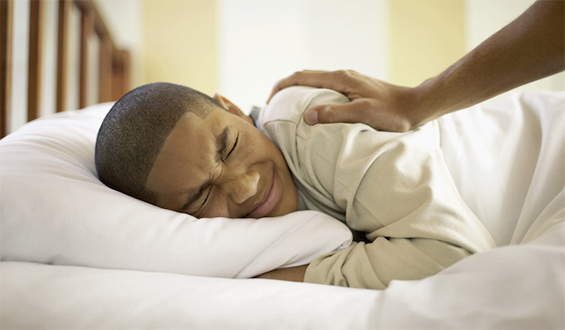
Children with attention deficit hyperactivity disorder (ADHD) have a difficult time meeting their daily requirements at home, school, and right up to the time they get ready for bed. But the stimulants taken to address ADHD can make falling to sleep and staying asleep especially difficult, according to a recent survey, and the result is often even more difficulty navigating through the next day.
Aimee Cunningham of NPR says parents are aware that the amount of sleep a child gets determines his or her emotional and physical health. But parents with ADHD children know that poor sleep worsens the symptoms of ADHD. Doctoral student in clinical psychology at the University of Nebraska, Lincoln, Katherine M. Kidwell, led the study, explaining:
“When children with ADHD don’t sleep well, they have problems paying attention the next day, and they are more impulsive and emotionally reactive.”
These stimulant medications make the children more alert, but some research has found they have a damaging effect on children’s quality of sleep. Other studies have revealed that for some children, the stimulants’ effects improved sleep in the same way it improved hyperactivity during the day. The drugs include methylphenidates such as Ritalin and amphetamines such as Adderall.
Kidwell and her team undertook a meta-analysis (a study that summarizes the results of research already in existence). The studies the group used were objective measures of sleep quality and quantity through the application of a lab setting or a monitor at home.
In the online journal Pediatrics, the researchers reported that taking stimulants leads to poor sleep overall for young subjects. The more doses children took during the day, the longer it took for them to fall asleep. The research implies that extended-release versions of the medication, taken once a day, have less effect than formulas with immediate-release formulas on how long it took to fall asleep. Immediate-release doses are taken three times a day and the last dose is close to bedtime.
The amount of time asleep while in bed was worse for individuals on stimulant medications, but the longer the time kids had been on the medicine, the better they slept. Those who were recently prescribed the medication fared poorly. Boys taking the drugs experienced poorer-quality sleep than girls.
Furthermore, the total amount of sleep children got each night was reduced for those taking stimulants. Kidwell says families and pediatricians need to know that stimulants are a real problem when it comes to sleep.
Kidwell said:
“We would recommend that pediatricians frequently monitor children with ADHD who are prescribed stimulants for potential adverse effects on sleep,”
Justin Caba reports for Medical Daily that the research team screened almost 10,000 articles and reviewed 167 tests to choose the nine studies they included in their meta-analysis.
Some of the consequences of sleep impairment are inattention, irritability, and defiance. The use of stimulant medicines could undermine the benefits derived from a treatment that includes the ADHD drugs. Kidwell pointed out that pediatricians should carefully monitor dosage amounts, standard versus extended release prescriptions, and the frequency of dosage.
“We’re not trying to encourage parents to stop their children’s medication,” Kidwell said. “But we do encourage parents to talk to their pediatrician if they think their child is having sleep problems.”
HealthDay’s Amy Norton said Dr. Trevor Resnick, chief of pediatric neurology at Nicklaus Children’s Hospital in Miami, who was not involved in the study, said parents need to set up good sleep habits. The addition of a bedtime routine, such as having the same bedtime every night and keeping electronics out of the bedroom, is essential.




